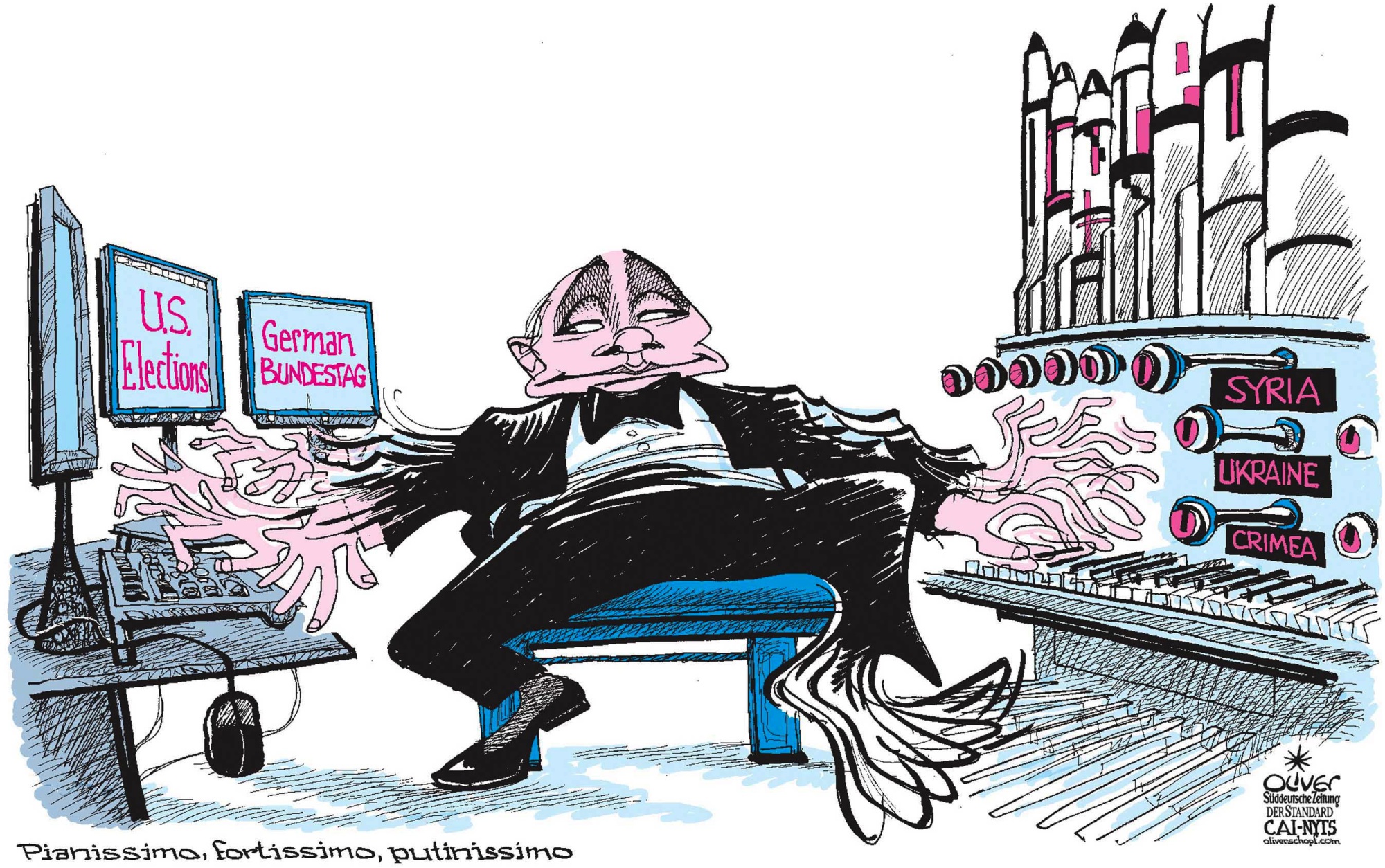One of President Barack Obama's most important legacies is a sense that the United States is no longer the dominant global power: It can be ignored. It's a new reality that became apparent this year as various authoritarian regimes and populist movements have tested it out.
President Vladimir Putin's Russia has been at the forefront of the effort. In the latest development, on Tuesday, the foreign and defense ministers of Russia, Iran and Turkey met in Moscow to discuss a plan for Syria. The U.S. was not invited. Instead, the ministers adopted a statement saying the three countries were willing to serve as the guarantors of a deal between the Syrian government and opposition. All other countries with "influence on the situation on the ground" are welcome to join, the statement said.
This is the kind of call the U.S. has grown accustomed to making during the post-Cold War decades of Pax Americana. Now, three authoritarian regimes — one of them, Turkish President Recep Tayyip Erdogan's, an increasingly nominal U.S. ally, and the other two open U.S. adversaries — feel empowered enough to assume their role in an area where perhaps the biggest threat to the West, the Islamic State, operates.



